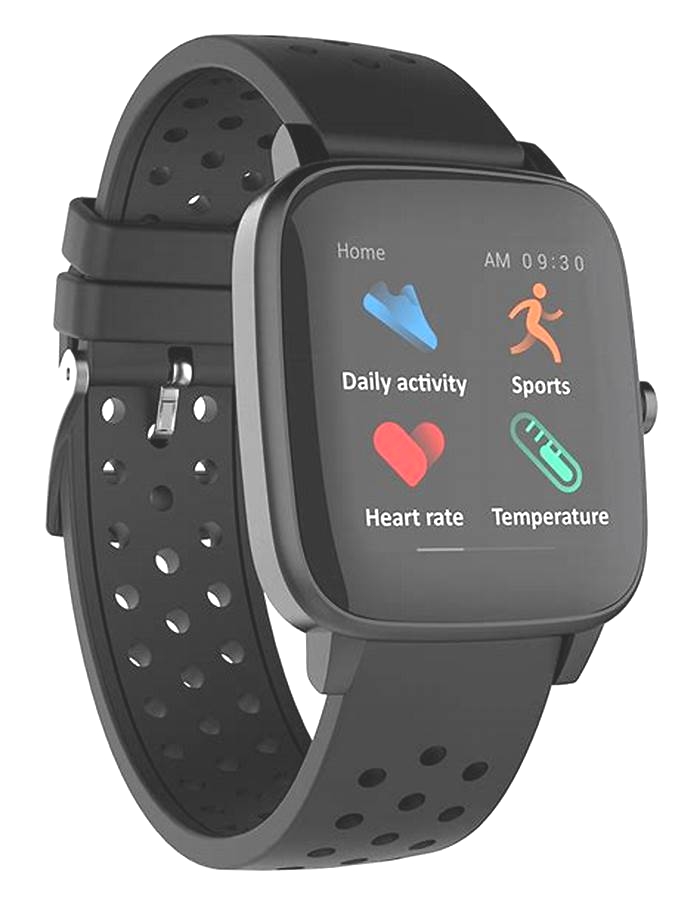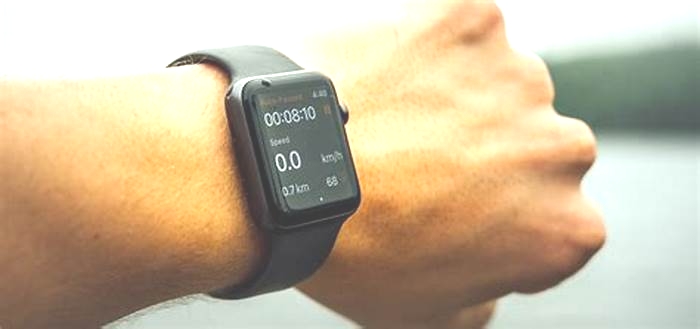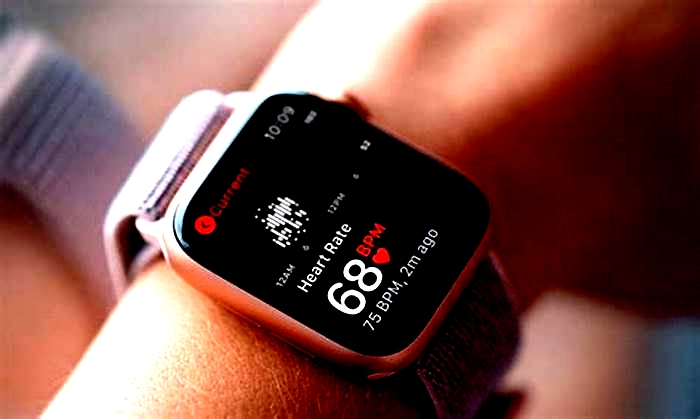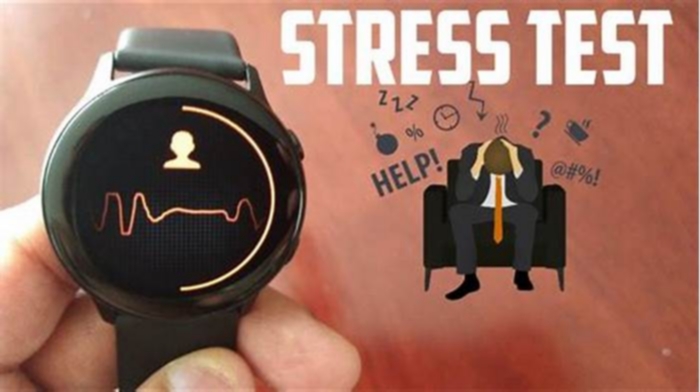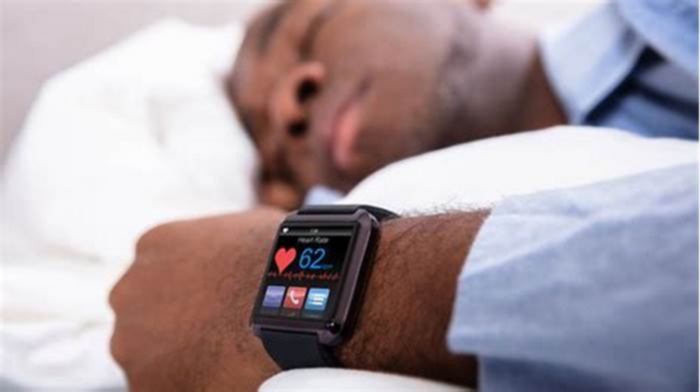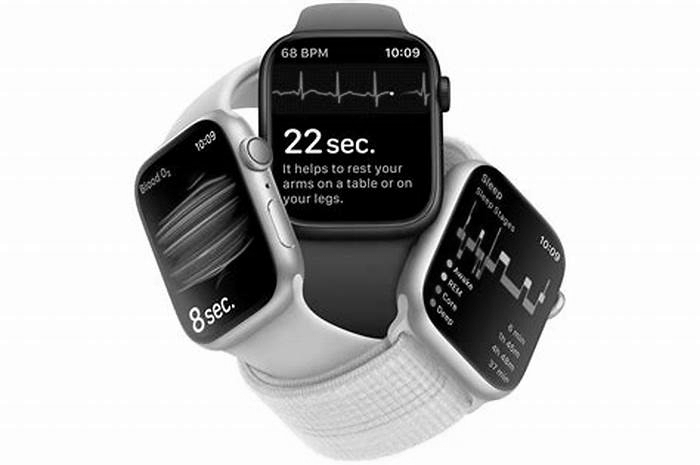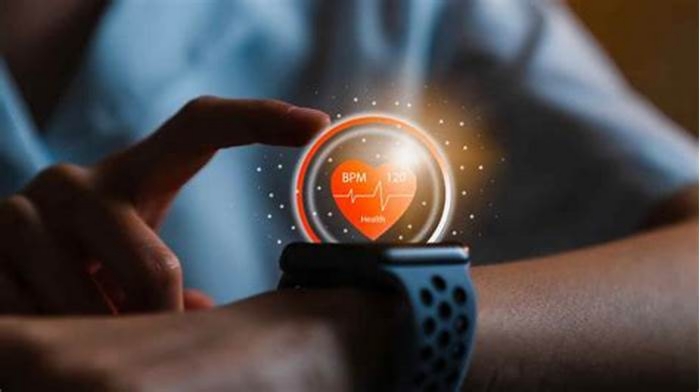Best Smartwatch Health Apps Monitor Your Wellbeing on the Go
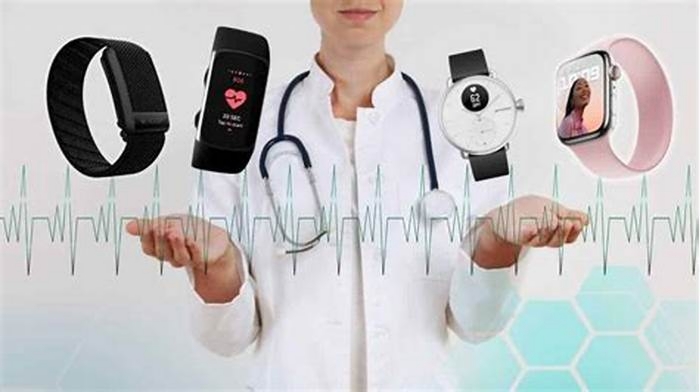
Best smartwatch for health monitoring in 2024
Using a smartwatch to monitor health has become a regular part of our everyday lives.Approximately one in five Americansnow own a smartwatch, and that number is increasing by the day.
Of course, smartwatches have many other functions unrelated to health and fitness, but health-related features have always been central to their use. For example, a pedometer to count steps and a heart rate monitor have both been mainstays of the smartwatch and fitness tracker world.
However, as technology improves, smartwatches are starting to offer much more sophisticated health monitoring features, such as calorie counting, ECGs, stress monitoring, blood pressure monitoring, and sleep tracking.
We are going to be taking a look at the best smartwatch for health monitoring in a range of different categories. Note that we wont be looking at medical watches such as theEmbrace Plus, which has medical-grade sensors. While the smartwatches in this list have FDA approval for many of their health-related features, they are for people to take accurate control of their wellbeing, rather than being full medical devices.
Why do you need a smartwatch to monitor your health?
There are some aspects of our health that are immediately obvious to us. You will notice when you get a cold or a stomach bug, for example, and you will notice that your clothing doesnt fit the same if your weight changes.
However, other aspects of our health and fitness can be much more difficult for us to monitor ourselves accurately. In the past, finding out about specific health measures would require a visit to a doctor or the purchase of an at-home medical device. But now, many of these measures can be achieved simply by wearing a smartwatch.
These measures can be grouped into those related to tracking and improving fitness and those directly related to health monitoring.
Fitness tracking
Reaching your fitness goals requires dedication and commitment and, for many people, accurately tracking progress can be a big motivator for staying on target. Smartwatches can be very useful for precisely this.
Your smartwatch will be able to track your heart rate. Your resting heart rate is a good measure of your overall fitness, and your heart rate while you are exercising can tell you how effective your workout is.
Your smartwatch will also be able to tell you about your daily activity, including the number of steps you take a day. And some smartwatches will also notify you if you are sitting down for too long, which can help you keep moving as much as possible.
Most smartwatches will track calories burned, although you will need to manually input your calorie intake into an app to track your calorie deficit.
Health tracking
Smartwatches now arent just limited to having fitness tracking features. They can also be an important part of keeping on top of your health.
One of the most valuable health features of smartwatches is that they allow you to monitor your heart health. For example, tracking your heart rate can tell you a lot about your heart health, which could evensave your life. In addition, many smartwatches now also offer ECGs, which can help you determine if you are at risk of heart conditions such as atrial fibrillation.
Sleep tracking is another common feature on many smartwatches. Many of us dont know how long we sleep each night because it is difficult to pinpoint the exact time we fall asleep and because we dont have any way of knowing what our sleep quality was. Sleep trackers use movement via an accelerometer and sometimes respiration to track the amount of sleep we have and the sleep quality (including sleep phases and disruption).
Long-term deprivation can have a wide range ofhealth implications, such as obesity, mental health issues, heart conditions, diabetes, and infertility, so taking control of your sleep health can be crucial.
Similarly, chronic stress can cause varioushealth conditions, such as mental health issues, cardiovascular disease, obesity, and diabetes. And one of the newer features of many smartwatches is a stress tracker. This uses an electrodermal activity (EDA) sensor to monitor the perspiration of your skin as a measure of stress. This can help tell you when you need to take steps to reduce your stress (many smartwatches have breathing or mindfulness exercises to help).
Best Overall: Apple Watch Series 7

The newest iteration of the Apple Watch includes some significant improvements to its health-monitoring features. The Apple Watch has always been a trailblazer in the health and fitness field, and the Apple Watch Series 7 is no exception.
The Apple Watch has been found to have aclinically accurateheart rate monitor, its accuracy with detecting an irregular pulse ishigh enough to allow it to detect atrial fibrillation, and it is a reliable way ofmeasuring heart rate and Sp02in lung disease patients.
With the Apple Watch Series 7, you can expect a wide range of sleek and informative fitness tracking options. These include activity tracking (with active zone minutes), in-depth workout-tracking, heart rate monitoring and an ECG, sleep tracking, mindfulness and breathing exercises, menstrual cycle tracking, and blood oxygen levels.
You can connect to the Apple Fitness+ app (for a fee), which will connect you directly with a wide range of workouts that you can track with your Apple Watch.
Why did we choose it?
The Apple Watch Series Seven has all of the health and fitness features you could expect from the new batch of smartwatches. And its features are backed by the wealth of research that Apple has poured into ensuring that they are accurate.
Pros
- Scientifically backed fitness and health monitoring
- A robust health tracking app
- ECG
- Blood oxygen monitoring
Cons
- It costs extra to link with Fitness+
- The battery life is still short
Best for Fitness Tracking: Fitbit Sense

The Fitbit Sense is a top-of-the-range offering from Fitbit that is perfect for fitness enthusiasts. Its companion app is one of the best at displaying useful health metrics, and it has a range of features that can help you improve or maintain your health and fitness.
You can expect the usual heart rate monitoring, activity tracking, and workout tracking that you would usually get from a fitness tracker. But the Fitbit Sense also comes with in-depth heart health metrics and an ECG for detecting atrial fibrillation.
For fitness, the Daily Readiness Score will use a variety of your health metrics to tell you whether you should be in recovery mode or you should go for it with your workout. And when you are working out, the Fitbit Sense will tell you which heart rate zone you are in to boost your fat burn.
The Fitbit Sense also has an EDA sensor to help you monitor your stress levels, as well as subscription-only stress reduction tools. And it will take your temperature throughout the night, so you will know when you wake up if youre running a fever.
Why did we choose it?
The Fitbit Sense has a range of health and fitness features that set it apart from many other smartwatches and make it the best fitness tracker available currently, including the Daily Readiness Score and heart rate zones. In addition, Fitbit is now part of the Google family, which has seen a range of updates that have improved its features, and it is at a lower price point than the Apple Watch Series Seven.
Pros
- Daily Readiness Score and heart zones
- ECG
- Stress monitoring
- Blood oxygen monitoring
- 6-day battery life (at rest)
Cons
- Many features require a Fitbit Premium subscription
- Step counter is sometimes inaccurate
Runner-up For Fitness Tracking: Whoop 4

The Whoop 4 smartwatch/fitness band is specifically designed for fitness enthusiasts. It is entirely screenless, which may put some people off, but it is just right for those who want to focus specifically on their fitness without the distraction of a screen. The lack of a screen also improves its battery life.
Its pricing plan is also different from the other smartwatches on the market. Rather than pay for the fitness band/smartwatch, you pay a monthly subscription and receive the watch for free. This means that you get free software and hardware updates when they are available, but, of course, you are tied into the monthly subscription.
The Whoop 4 uniquely approaches health and fitness. The accompanying app will calculate your Recovery zone based on your heart rate variability, resting heart rate, sleep score, and respiratory rate. And using these measures will tell you how much you should be exerting yourself that day.
It also calculates your Strain. This propriety measure calculates the exertion you are putting your body under based on your health measures and activity. The goal is to stay in the optimal Strain zone based on your Recovery zone.
The Whoop 4 will monitor your sleep. It also has a health monitor that looks at your heart rate, heart rate variability, resting heart rate, skin temperature, and blood oxygen levels, which can alert you to any irregularities.
Why did we choose it?
This is an excellent watch for tracking fitness, and it has a range of dedicated features and in-app monitoring to help you reach peak performance. In addition, its understated and minimalist design can appeal to people who would prefer to move away from screens.
Pros
- Dedicated fitness band for fitness and activity tracking
- Specialised fitness features in-app
- Long battery life
- Lightweight and designed to be worn 24/7
Cons
- No screen or additional smartwatch features
- Tied into a monthly subscription
Best for Heart Monitoring: Samsung Galaxy Watch 4

Galaxy Watch 4 by Samsung
The latest offering from Samsung, the Samsung Galaxy Watch 4, improves significantly on the previous Samsung Galaxy Watch 3. One of the major differences is that it uses Wear OS (although it is underneath the Tizen software), which will be a welcome change for many people.
It has all of the usual Smartwatch health and fitness features, but it also has unique features. For example, the 3-in-1 biometric sensor uses optical heart rate, electric heart rate, and bioelectrical impedance analysis to detect atrial fibrillation, blood oxygen levels, and body composition.
Samsung has also invested in greatly improving their heart rate measurement accuracy algorithm to give you the most accurate heart rate.
You can also use the Samsung Galaxy Watch 4 for blood pressure monitoring. However, it should be noted that it uses photoplethysmography, which wont be entirely as accurate as a blood pressure monitor.
The watch isnt compatible with iPhones and, while it is compatible with all Android phones, some features are only available if you have a Samsung phone (blood pressure, ECG, and body fat percentage).
Pros
- Highly accurate heart rate monitoring
- ECG
- Blood pressure monitor
- Wear OS
Cons
- Not compatible with iPhones, and some features are only available on Samsung Android phones
Best for blood pressure monitoring: Omron HeartGuide

Heartguide by Omron Healthcare
The Omron HeartGuide is more of a dedicated blood pressure monitor than a smartwatch. And, unlike other smartwatches blood pressure monitoring offerings, it uses a blood pressure cuff rather than relying on less accurate photoplethysmography.
Underneath the watch band is a blood pressure cuff that starts tightening and taking blood pressure readings whenever the watch is lifted close to the heart. And the device isFDA-approvedfor measuring blood pressure and heart rate in adults and giving warning signals if there are irregular heartbeats.
The Omron HeartGuide doubles as a medical-grade blood pressure cuff. It also takes other health readings, such as heart rate, activity, and sleep. However, these factors are relatively basic compared to other smartwatches on the market.
With it, you can monitor your blood pressure fluctuations throughout the day. Omron is also developing a method of measuring blood pressure throughout the night, which will be a unique way of assessing blood pressure.
Why did we choose it?
The Omron HeartGuide is perfect for highly motivated people to monitor their blood pressure. It is the only device currently available that can do so with the same level of accuracy.
Pros
- Clinically validated blood pressure monitor
- Relatively long battery life
Cons
- Expensive compared to other smartwatches
- Heavy and bulky
- Only the medium cuff is available at the moment, which is too large for most women and maybe too small for some people (large and small versions are on their way)
- Basic health monitoring other than blood pressure
Runner-up for Blood Pressure Monitoring: YHE BP Doctor Pro

Before the YHE BP Doctor Pro, the Omron HeartGuide was the only watch on the market that used an oscillometric blood pressure cuff to measure blood pressure (rather than photoplethysmography). You can see our review here for a more detailed overview of the YHE BP Doctor Pro.
The YHE Doctor Pro uses the same technology to do the same readings but, unlike the Omron HeartGuide, it isnt currently FDA-cleared. This doesnt mean that you shouldnt use it, but it could indicate that the results arent as accurate.
Rather than lifting the smartwatch to your heart, as you do with the Omron HeartGuide, you instead need to press a button to activate the YHE BP Doctor Pro. Other than that, you will receive similar blood pressure monitoring.
It also has more health and fitness features than the Omron HeartGuide. For example, it measures the usual steps and activity, and it also measures Sp02 (and can alert you to potential sleep apnea episodes), sleep tracking, calorie counting, and heart rate variability.
It does have some workout-tracking, but it is relatively basic and only has a handful of workouts that can be activated.
Why did we choose it?
If youre looking for a blood pressure smartwatch with more features than the Omron HeartGuide, the YHE BP Doctor Pro is a great option. It is still mostly dedicated to blood pressure (although without FDA approval), but there are some other helpful health and fitness measures that you can track. Version 2 is due to be released shortly, and we will be giving it a detailed review, so be sure to check back.
Pros
- Oscillometric blood pressure monitoringA range of other health and fitness features
Cons
- Not FDA-cleared
- Basic workout and fitness tracking
Best for Sleep Tracking: Apple Watch Series 7

While most smartwatches come with sleep tracking features, the Apple Watch Series 7 can help you be more proactive about taking control of your sleep health.
It will track your time in bed and time asleep by using your movements throughout the night (as well as your respiratory rate). But the real magic comes from its Sleep app. If you already own an iPhone, you will be familiar with the Sleep app, and the Apple Watch Series 7 works in the same way.
Through it, you can set your sleep schedule. This includes setting sleep goals for how much sleep you want to get and setting a time to go to sleep and wake up. In addition, the watch will give you a wake-up alarm by buzzing against your wrist.
When it is time for you to go to sleep, the Apple Watch Series 7 will go into sleep mode according to your schedule. The lights dim, and your notifications are silenced to help you get to sleep more easily. When its time to wake up, it displays a wake-up screen.
Why did we choose it?
The Apple Watch Series 7 doesnt just let you passively record your sleep data. Instead, it helps you proactively take charge of your sleep health by setting sleep goals.
Pros
- Allows you to set a sleep schedule and sleep goals
- Goes into sleep mode to help you drift off
- Integrated alarm
Cons
- The battery life means that you will need to find a time to charge it during the day if you want to wear it overnight
- Doesnt measure as many variables as other smartwatches, so it cant give sleep phase insights
Best for Stress Management: Fitbit Charge 5

Many of the newer Fitbit iterations allow you to monitor your stress levels, including the Fitbit Charge 4 and 5, the Fitbit Versa 2 and 3, the Fitbit Luxe, and the Fitbit Inspire 2.
The Fitbit Charge 5, however, strikes just the right balance between stress monitoring and other features. It isnt as expensive as the Fitbit Sense, and this is reflected in its fewer fitness features, but if your goal is to take control of your stress levels, it will work perfectly.
Fitbit uses an EDA sensor to measure electrodermal changes, as well as your heart rate, to see if you are in fight or flight mode. And it will monitor your sleep duration and quality as another sign of stress. You can also input your current subjective stress levels and emotional state. Together, this will give you a picture of how stressed you are.
If you subscribe to Fitbit Premium, you will have access to guided meditations, breathing exercises, and other stress management tools.
Pros
- Less expensive than other models but with solid stress management features
- Other health and fitness features, including an ECG
- Access to Fitbit health and fitness tracking app features
Cons
- Need to pay a subscription for Fitbit Premium to access stress management tools
Best for weight loss: Healbe GoBe3

Losing weight is all about creating that calorie deficit. Most smartwatches will tell you how many calories you have burned. Still, you will have to manually input the calories you consumed into an app (e.g., MyFitnessPal) to get the full picture of whether you are hitting your calorie deficit.
Healbe GoBe 3 is entirely different. They claim that they can automatically measure your calorie intake without ever needing to input your food into an app again.
It does this by using a bioelectrical impedance sensor that measures the amount of glucose moving in and out of your cells. So, for example, digesting carbohydrates will convert them into glucose which triggers water to move out of your bodys cells while you absorb the glucose. And fats and proteins can influence glucose absorption.
Healbe GoBe2 uses an algorithm to calculate the calories you have consumed. It also measures your hydration and will prompt you to drink water, as well as to measure stress, sleep, and steps.
There is a fair amount of doubt hanging over the accuracy of the calorie intake measures, and the fitness tracker side of the watch is relatively basic. But this watch could well be the start of an entirely new way of losing weight.
Pros
- The only smartwatch or fitness tracker that automatically measures calorie intake
- Has a range of other health-related features
Cons
- The calorie intake measure may not be accurate
- The battery life is poor
Best for Health Monitoring in Style: Withings Scanwatch

The Withings Scanwatch is the smartwatch for people who want their watch to look like anything. It harnesses a classic high-end watch style while also providing an impressive array of health and fitness features.
It doesnt have an interactive watch face, and the face instead uses physical watch hands to mark the time, with a separate dial for tracking your steps. A small LED display and the bevel allow you to set the watch, view notifications, fitness tracker, and health results.
This lack of display means that the Withings Smartwatch has the best smartwatch battery life of the bunch at 30 days. Alongside that, it has a medical-grade ECG and oximeter (for Sp02), atrial fibrillation notification, heart rate tracking, sleep tracking (with breathing disturbance notifications), steps and activity tracking, and workout tracking.
Why did we choose it?
The Withings Scanwatch is all about style, and Withings have created a timeless look for their watch with a range of customization features, including the type of metal and watch face color, as well as a wide range of interchangeable bands.
Pros
- Has a high-end classic watch look that makes it stand out from the crowd
- A 30-day battery life
- A range of health and fitness features
Cons
- The associated HealthMate app can be limited and doesnt sync well with other apps
- No built-in GPS
To wrap up
If you are looking for the best smartwatch or the best fitness tracker, this can often depend on precisely what you are looking to get out of wearing it. Maybe youre focused on improving your fitness, or you might be more interested in taking care of your health. All of these smartwatches are perfect for different needs and, while they are all relatively expensive compared to a basic smartwatch or fitness tracker, quality does come at a price. Aside from these, you might need something more specialized such as amedical alert watch with fall detection.In which case, there are even more options out there for you.
Let us know if you liked the post. Thats the only way we can improve.

